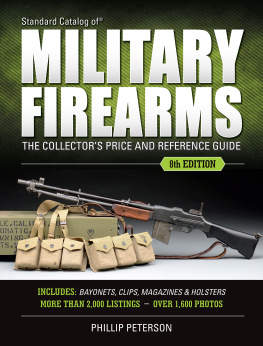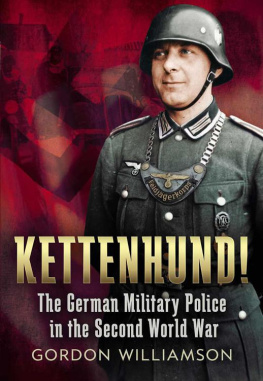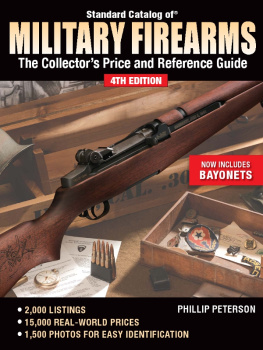This edition is published by PICKLE PARTNERS PUBLISHING www.picklepartnerspublishing.com
To join our mailing list for new titles or for issues with our books
Or on Facebook
Text originally published in 2009 under the same title.
Pickle Partners Publishing 2013, all rights reserved. No part of this publication may be reproduced, stored in a retrieval system or transmitted by any means, electrical, mechanical or otherwise without the written permission of the copyright holder.
Publishers Note
Although in most cases we have retained the Authors original spelling and grammar to authentically reproduce the work of the Author and the original intent of such material, some additional notes and clarifications have been added for the modern readers benefit.
We have also made every effort to include all maps and illustrations of the original edition the limitations of formatting do not allow of including larger maps, we will upload as many of these maps as possible.
The Non-Standard Mission
SGM Robert R. Gosselin
Operation Iraqi Freedom, OIF 2, 5Jan04 26Feb05
Rear Detachment Operations NCO
Abstract
My field artillery unit was mobilized to perform a non-standard military police mission during Operation Iraqi Freedom II. The unit was part of the largest National Guard mobilization from our state since the Vietnam era. The challenges of deploying a field artillery unit as an ad hoc MP company were many. The challenges were overcome through the strength of our NCO Corps. As I write this paper, I am preparing for a deployment, a non-standard mission with my current unit. As I compare the two mobilizations, it is apparent that the process for mobilizing, training and preparing our soldiers has improved since the first rotation, but issues concerning the selection of units for non-standard mission still exist five years later.
Mobilization
Headquarters 2-197 th Field Artillery received the mobilization order on 29 November 2003. Our battalion was tasked with providing a 184 man Military Police (MP) Co for duty in Iraq. The mobilization order did not provide any information concerning the mission or specific locations, only the mobilization date of 5 January 2004. With only thirty four days to prepare our soldiers, we needed to respond quickly. The first order of business was to identify which of the 400 assigned soldiers from within our ranks would fill the MP company force structure provided to us. The manning document consisted of the battery headquarters, operations center, and four platoons with three squads each. Our battalion staff was already bare, as almost all of the staff had already been identified to deploy with our brigade headquarters for a separate mission. I was the Operations NCO for the battalion and had already been selected to serve as the Rear Detachment NCO. I was tasked with filling the manning document for this MP mission. Our Battalion Commander directed that Battery A would be the base unit, and the remainder of the positions would be filled from the remaining units. Battery A filled the battery headquarters and one platoon. Battery B and Battery C each filled a platoon, and HHS filled the Operations Center positions.
Soldier Readiness Processing (SRP) began that week. All medical and personnel issues were taken care of, as well as ensuring all soldiers were provided a full issue of individual equipment. We were told that all other equipment would be provided at the mobilization station or in theatre. Two weeks remained before mobilization. As a field artillery unit, we did not have any personnel with military police training or experience. But within our ranks, we identified thirty soldiers, most were NCOs, whom had civilian experience as policeman or correction officers. These NCOs stepped up to develop a basic training plan to provide the remaining soldiers with a basic knowledge detainee operations, search tactics, and escort operations.
Mobilization Station
HHS 2-197 th FA FWD (MP) traveled to Fort Dix, NJ on 5 January 2004. Over the next 42 days, the unit conducted the normal mobilization station tasks, such as SRP, theatre briefs, and RFI fielding. Post-mobilization training was limited to individual soldier skills. The last week at Fort Dix, convoy training was provided. This improvised MP Company, consisting of 184 field artillery soldiers, were considered ready to deploy. There was not enough time or assets to provide our unit with any official MP training. The mobilization station was not prepared to train these ad hoc units that were literally being pushed through for quick deployments. The unit still did not know what its mission would be in theatre, but at least now we knew the destination was Mosul, Iraq.
Location Assignment
The majority of the unit arrived in Kuwait on 20 February 2004. Upon arrival in Camp Virginia, confusion set in, as orders had not yet arrived and nobody knew what mission or location my unit was scheduled to conduct. Two days later, an LNO from Mosul arrived with instructions to convoy to Mosul. After conducting the Kuwait specific training, the unit began its journey to Mosul. By 12 March 2004, most of the unit had arrived in Mosul. The unit we were replacing had already left theatre. All their equipment was left behind for our unit to fall in on. The Property Book Officer that was signed for all the equipment was home on leave, which created initial problems with settling into the area.
Our Company Commander received orders that one platoon was needed to support Task Force Olympia by providing combat patrols throughout Mosul. The remainder of the unit was ordered to retrograde to FOB Danger, Tikrit. The unit was also tasked to provide security for the 503 rd Military Police Battalion from Mosul to FOB Speicher as they conducted their retrograde to FOB Danger. The unit arrived in Tikrit on 18 March 2004 after successfully completing the security operations. Once in Tikrit, the unit was once again split up. The commander received orders from 1 st Infantry Division to provide one platoon and a headquarters slice to supplement the 293 rd MP Battalion in BaQubah. On 25 March 2004, 2 nd Platoon along with a slice element from the Headquarters platoon traveled to BaQubah. The remainder of the unit, comprised of the Headquarters platoon, 1 st and 4 th platoon remained in FOB Danger.
Theatre Operations
The unit was now split into three locations which obviously created unique command and control challenges. 3 rd Platoon received its orders from 3 rd ID in Mosul, but received limited support. They were directed to receive its support from our unit headquarters in FOB Danger. The remainder of the unit conducted operations under 1 st ID. Operations for the unit continued until their RIP in early February 2005. HHS 2-197 th FA conducted a wide array of Combat Support Operations ranging from Area Security Operations, Maneuver Mobility Support Operations, and Police Intelligence Operations in Mosul, Tikrit, and BaQubah..
3 rd Platoon conducted over 600 combat patrols of the east side of Mosul, assisting Task Force Olympia units with area security by disrupting, capturing or killing Anti-Iraqi Forces conducting small arms, rocket propelled grenade, mortar and rocket attacks against Coalition and Iraqi Security Forces.












